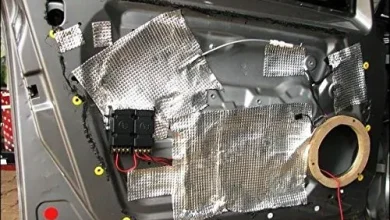Why is it important to fill out RTO Form 22 correctly?

Correctly completing RTO Form 22 is essential since it guarantees a vehicle’s complete registration and legal documents. This document, which is provided by the Regional Transport Office (RTO), attests to a vehicle’s compliance with legal, safety, and environmental requirements.
Filling out the form accurately guarantees that the car is legally roadworthy, helps eliminate registration delays, and avoids legal problems. Incomplete or inaccurate information can result in needless problems like penalties, reprocessing, or even registration rejection. For the registration and ownership transfer procedures to go well, it is necessary to fill out RTO Form 22 with precise information.
1. What is RTO Form 22?
In order to register the car and guarantee its safety and roadworthiness, this paperwork is essential. Important information like the vehicle’s engine number, sound levels, and emission values are included on RTO Form 22. It is necessary when transferring ownership or registering a new vehicle.
The vehicle manufacturer certifies that the vehicle satisfies the necessary environmental and safety requirements as per the Central Motor Vehicle Rules (CMVR) by issuing RTO Form 22, also known as the Certificate of Compliance with Pollution and Safety Standards. This document, which is necessary for registering a new car with the Regional Transport Office (RTO), attests to the car’s compliance with legal safety and pollution regulations.

2. Documents needed with Form 22
The vehicle’s invoice
One document that the dealer provides as evidence of purchase is the vehicle’s invoice. It contains information about the car’s price, model, engine number, chassis number, and buyer’s data.
Insurance Certificate
One document that attests to the vehicle’s insurance is the insurance certificate. It contains information like the vehicle’s registration number, the insured’s name, the insurance policy number, the duration of the policy’s coverage, and the terms of coverage. It guarantees adherence to legal criteria and is required for car registration.
Proof of Identity
Documents like Aadhaar card, PAN card, passport, or voter ID.
Proof of Address
One document that confirms the applicant’s residential address is the Proof of Address. Utility bills, Aadhaar cards, passports, voter IDs, and rental agreements are typical instances. Establishing the owner’s residence is necessary for vehicle registration.
Form 21
The sale certificate that the car dealer issues is Form 21. It acts as evidence of purchase, certifying that the car was lawfully sold to the buyer and that it is prepared for registration.
Pollution Under Control (PUC) Certificate
A Pollution Under Control (PUC) certificate attests to the car’s adherence to emission regulations.
Road Tax Payment Receipt:
Evidence that the relevant road tax has been paid.
3. RTO Fitness Certificate (FC) Charges
Commercial vehicles and older vehicles (usually after 15 years of registration) are subject to RTO Fitness Certificate (FC) fees. The kind, weight, and location of the vehicle all affect these fees. Among the general fees are:
For Commercial Vehicles
- usually falls between ₹200 and ₹500 for cars that are under three years old.
- Depending on the type and state, cars older than three years may cost anywhere from ₹600 to ₹1,000.
For Private Vehicles
- A fitness certificate, which can cost between₹300 and₹500 for light vehicles and more for heavy commercial vehicles, may be necessary after 15 years of registration.
Re-inspection Fees-
- Additional fees, usually between₹200 and₹300, could be incurred if the car fails the fitness test and needs to be reinspected.
Conclusion
To make sure your car satisfies safety and environmental regulations, you must submit RTO Form 22 at the time of registration.
Correctly completing RTO Form 22 is essential to guaranteeing that the car complies with safety, environmental, and regulatory requirements. A correctly filled-out Form 22 guarantees the car is safe to drive, avoids legal problems, and speeds up the registration procedure. It also ensures that the car complies with the safety regulations and environmental standards imposed by the government. Giving false or insufficient information may result in penalties, registration refusal, or even issues with subsequent car purchases.
FAQs
1. Can vehicles be registered online in India?
In India, it is possible to register a car online. Online registration services are provided by the relevant state RTOs and the Ministry of Road Transport and Highways (MoRTH). Users can pay registration costs, submit paperwork, and monitor the process using the internet portals.
2. Who requires the Form 22?
New car owners must complete and submit Form 22 to guarantee their new vehicle is safe and legal to drive in India. This document attests to the car’s compliance with all Central Government emission standards and other requirements.
3. What information is critical to verify when filling out Form 22?
Verify the vehicle’s chassis number, engine number, model details, and compliance with safety and pollution norms before completing Form 22.
4. Why is filling out RTO Form 22 important?
Correctly completing RTO Form 22 is essential to guaranteeing that the car conforms with safety, pollution, and legal requirements, facilitating easy registration and roadworthiness.



